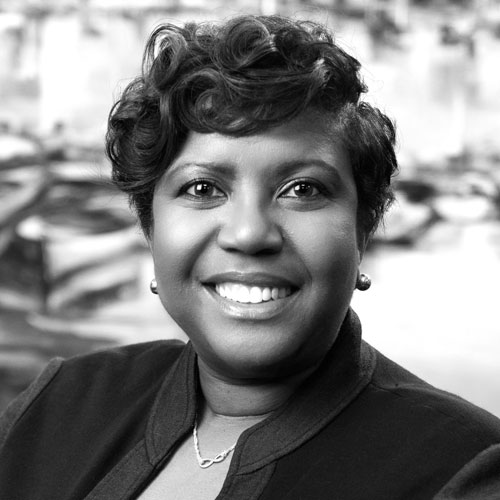When Lilicia Bailey joined the Wake Forest Baptist Medical Center human resources department in 2016, she had no intention on things being business as usual.
No, Bailey, the vice president and chief human resources officer at the university’s medical center had other plans. Those plans included changing the way the department was viewed. The first change on the list—rename Human Resources to the People Team.
“The primary reason for renaming the department is centered on nomenclature,” Bailey says. “I believe nomenclature is important and what you name something should signify the vision and the mission and the key objective. For a couple of reasons, the HR department doesn’t have a great reputation; not just here, but across the board. HR tends to be made up of administrators, and in some regards, they are viewed as a necessary evil. That was not too dissimilar to what I found when I joined the organization.”
It was Bailey’s opinion that the department needed to be more focused on people than on the administrative side of the job: dotting the I’s, crossing the T’s, creating forms, and worrying about processes and policies. Although those are all necessary, Bailey believed what people really wanted is an HR function that understands the needs of the institution and delivers on those needs in partnership, instead of operating like a personnel function. And so the new name—the People Team—was appropriate.
Some of the staff praised the name change; people applauded the move and felt they could rally behind the vision and direction and where the change was going to take people. However, while there weren’t many negative reactions, there was confusion. Some people weren’t sure if they could still call the department Human Resources. For Bailey, the label didn’t matter as much as the department coming together as one unit working with the faculty, staff, physicians and nurses.
“I don’t get worked up if people call us HR,” Bailey says. “It takes time, and it’s not necessarily about that for me. We’re seen as a critical contributor to the mission of the institution, regardless of what you call us.”
Bailey’s transition has not stopped with a departmental name change. She also created a three-year journey that will transition the department from an administrative, compliance-oriented HR function to a truly integrated people strategy division.
To that end, an initiative called People Strategy 2020 was created with Wake Forest Baptist’s leaders and will be rolled out in three separate waves. The initial wave is about building trust and will be followed by operational effectiveness and strategic contributors to the mission. Each wave could take about a year to complete.
When she first came to Wake Forest Baptist, she did a quick assessment to see what the medical center’s state of affairs was and to identify any gaps. She realized if the department were going to shift into the People Team, it would have to rebuild trust so that it could do what was promised and on time.
Completing that first wave of building trust will require putting together a high-performing team, and that starts with having the right leaders in place. Wake Forest crafted its leadership core by recruiting talent and by developing talent internally. Then, those leaders assessed their talent capabilities, figured out the competencies that they needed, and started to bring in team members to augment where the company has gaps.
“One of the things that I found to be important is you have to have the right people,” Bailey says. “It’s kind of like Jim Collins’ Good to Great. You have to have the right people on the bus.”
Another component in the People Team’s transition will be to look at how the department engages with the entire Wake Forest Medical Center organization. To do that, Bailey and her team work to be transparent about what they’re doing, and they’re willing to be vulnerable enough to admit when it’s not doing well.
The engagement strategy will also include asking staff members to partner with others and establish a People Advisory Counsel, similar to a board of directors but for Bailey’s department. The goal is to give the department a cross section of leaders who can help be a sounding board for the organization and advise new talent.
“People want to be engaged; they want to be a part of this feeling of belonging,” Bailey says. “I’m kind of tapping into the element that creates engagement across the enterprise. I’m just taking incremental steps as I listen, learn, and lead to make changes.”
After only a little more than a year with Wake Forest, Bailey has made some sweeping changes. She, however, has the credentials to justify putting her vision for the department into action so quickly. As the vice president and chief people officer at Belk, Inc., she built the company’s change management and centralized its HR field division with a focus on career development, training, employee engagement, and workflow efficiencies.
Bailey also held a similar position at Manheim Auctions, a division of Cox Enterprises. Her work in those roles led to her being named one of the 50 Most Powerful Women in Corporate America by Black Enterprise and of the Top 100 Most Influential Blacks in Corporate America.
In other words—she’s good at what she does. But she had plenty of people who helped her become the dynamic leader she is today.
“It’s been a journey of continuous learning,” Bailey says. “I think the other thing is knowing who you are. There are leaders who have mentored me and people I look at that have their act together. They are making a difference, and in some regards, you want to say, ‘If I emulate that individual, I’ll have some success.’”
Korn Ferry is proud to be a trusted business partner of Wake Forest Baptist Medical Center and its forward-thinking leaders like Lilicia Bailey. Korn Ferry Health brings unmatched research and experience helping healthcare organizations develop new talent strategies, fulfill leadership demands and create new organizational designs and structures. Our capabilities cover the entire talent and organizational continuum to address challenges and opportunities unique to the healthcare industry and its transition towards value-based care.

